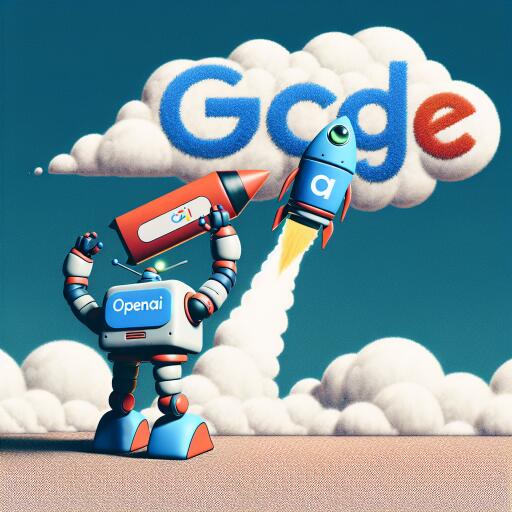OpenAI to Launch ‘SearchGPT’ Challenging Google’s Monopoly
In an era where artificial intelligence (AI) is revolutionizing the way we interact with the digital world, OpenAI, co-founded by Sam Altman, is making a bold move to redefine web search with the introduction of ‘SearchGPT.’ According to OpenAI’s latest blog post, “We’re testing SearchGPT, a prototype of new search features designed to combine the strength of our AI models with information from the web.” This innovative tool aims to enhance the user experience by providing updated information coupled with links to relevant sources.
However, as of now, SearchGPT is not widely available. The initiative is in a nascent phase, launched to a select group of users and publishers to gather essential feedback. This strategic phase is crucial for shaping the functionality and user interface of SearchGPT, ensuring it meets the high expectations and diverse needs of its future user base.
OpenAI is not just stopping at amalgamating conventional search mechanisms with AI; it’s taking a leap forward. The organization is keen on personalizing the search experience. To achieve this, SearchGPT will allow users to ask follow-up questions, making the search journey smoother and more interactive than ever before.
Highlighting the importance of collaboration with publishers and creators, OpenAI aims to make these stakeholders an integral part of the SearchGPT ecosystem. By doing so, OpenAI aspires to empower these creators, making their content more accessible to users while also enriching the overall quality and depth of content available through SearchGPT. This approach signifies a win-win scenario, providing users with a wide array of high-quality, engaging content and offering publishers and creators enhanced visibility and reach.
The potential impact of SearchGPT on the landscape of online news and content creation is significant. Nicholas Thompson, CEO of American news magazine The Atlantic, emphasized this in a statement saying, “AI search is going to become one of the key ways that people navigate the internet, and it’s crucial, in these early days, that the technology is built in a way that values, respects, and protects journalism and publishers.” Thompson’s remarks underscore the critical importance of developing AI technologies like SearchGPT in a manner that upholds the integrity and sustainability of the journalism and publishing industries.
Despite the optimism surrounding SearchGPT, OpenAI has faced its share of challenges, particularly concerning copyright issues. Notably, The New York Times initiated legal action against OpenAI, alleging that the latter used millions of the newspaper’s articles to train its chatbots and other artificial intelligence technologies without permission. This lawsuit highlights the ongoing tension between the development of cutting-edge AI technologies and the protection of intellectual property rights. In response, Lindsey Held, an OpenAI spokeswoman, stated, “We respect the rights of content creators and owners and are committed to working with them to ensure they benefit from AI technology and new revenue models.” This statement reflects OpenAI’s willingness to engage with content creators and rights owners to find mutually beneficial solutions that foster innovation while respecting copyright laws.
In conclusion, OpenAI’s SearchGPT represents a fascinating development in the world of AI and digital search. With its emphasis on user-focused features like follow-up questions and personalised search experiences, alongside a commitment to working synergistically with publishers and creators, SearchGPT is poised to challenge the current paradigms of web search. As it evolves and expands its user base, it will be intriguing to see how SearchGPT shapes the future of information discovery and consumption on the internet.









